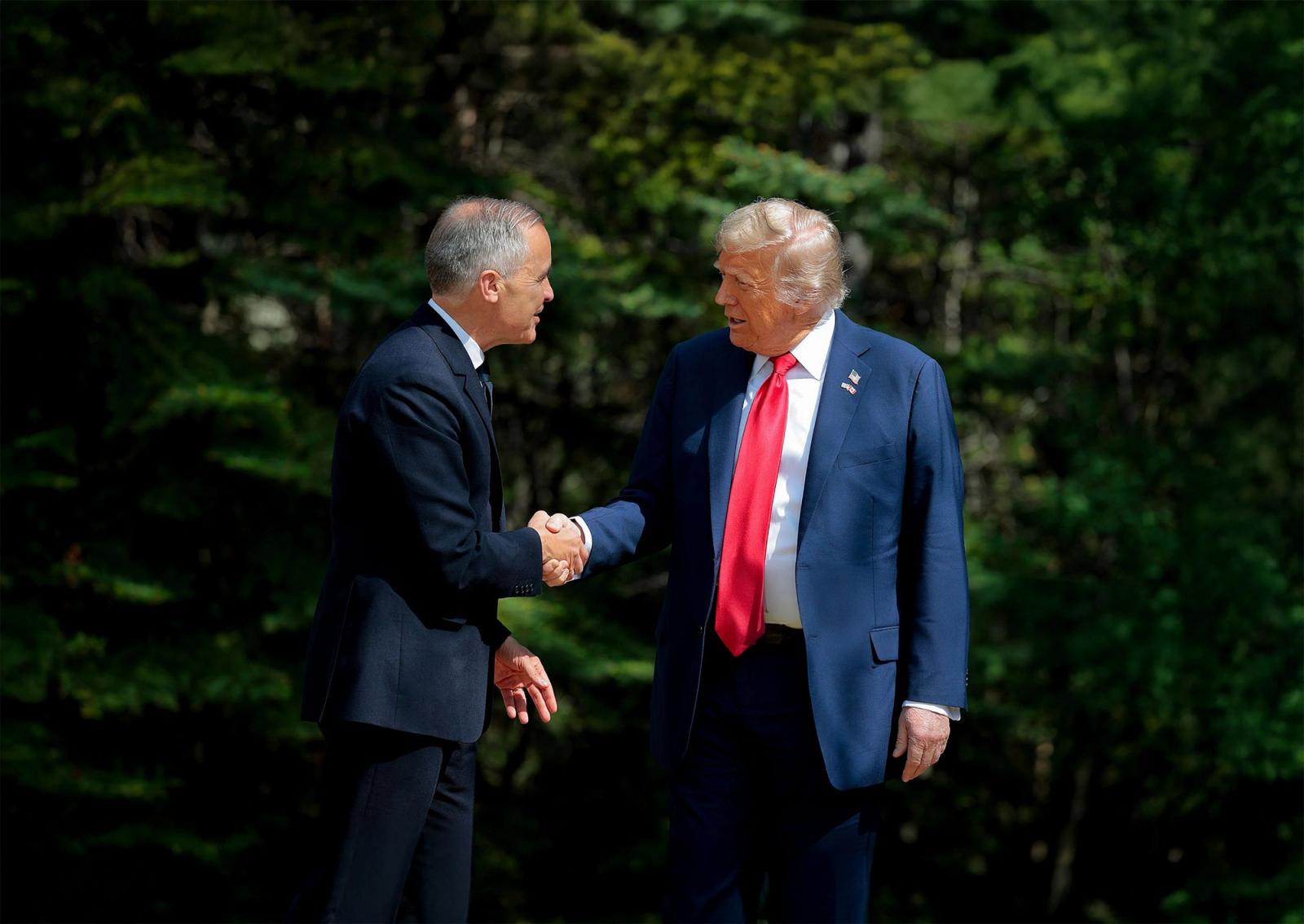The Topline
- Canada is rolling back most retaliatory tariffs imposed on U.S. goods back in March, marking a significant de-escalation in trade tensions between the two countries
- The 25% tariffs will be removed on U.S. imports that fall under the United States–Mexico–Canada Agreement (USMCA), but will remain on steel, aluminum, and automobiles until a revised agreement is struck
Switch sides,
back and forth
It puts Canada in a stronger negotiating position
Prime Minister Mark Carney is attempting to buy some much-needed goodwill in Washington at a time when President Donald Trump’s White House has been pummeling Canada with 35 per cent tariffs as part of its America First posturing.
Carney is betting that a friendly gesture now may translate later into bargaining chips on steel, aluminum, and autos – where Canada wields real power.
The Prime Minister stated that the U.S. will not tariff Canadian goods that comply with USMCA and Canada is matching that approach as a show of good faith to reset trade and security talks in advance of the 2026 USMCA review.
Not to mention, over 85 per cent of Canada–U.S. trade remains tariff-free anyway. This is in some ways a public relations play, and a signal to Trump that Canada is ready and willing to be friends again. Canada looks cooperative and reasonable, and in the meantime individuals Canadians can maintain its boycott of American goods without Ottawa sacrificing bilateral cooperation.
Domestically, this decision eases pressure on industries, including manufacturing, retail and agriculture, that rely on seamless cross-border supply chains that these tariffs complicate. Business confidence is its own currency and Carney is removing a layer of uncertainty in an effort to bolster the domestic market.
This is less of a surrender and more like disarming a bomb strapped to the economy.
SO WHAT?
The optics for Carney may not be optimal in the short-term, but optics matter less this early in his term, than stabilizing the economy. Someone needs to be the adult in the room, which is precisely why Carney was elected in the first place.
Never trust a Trump
Canada is holding the U.S. to its word that tariff-free Canadian goods crossing the border into the U.S. actually remain tariff-free – but if history is any indication whatsoever, the U.S. may renege at any point.
President Donald Trump is mercurial, to say the least, and trusting anything that comes from the administration on a policy level should be dealt with very cautiously. Trump has complained about the USMCA as being lousy for Americans, despite this being an agreement that h e himself signed during his first term.
Not to mention, tariffs are supposed to be reciprocal. By lifting ours without securing matching concessions, Canada undermines the very principle of reciprocity that USMCA is built on. If Mexico sees Ottawa rolling over, why wouldn’t it cut side deals too? Canada risks looking like an easy mark in trilateral negotiations, which could weaken its position heading into the 2026 USMCA review.
This gives an opening to the opposition – what with the return of Parliament’s pre-eminent attack dog and all – to hammer the Prime Minister for abandoning Canadian workers while propping up American exporters
Ultimately, this just makes Carney look soft. By removing most of Canada’s tariffs while the U.S. keeps hammering us with their own, Ottawa has tossed away its most important bargaining chip. Yes, crucial industries remain under tariff pressure, but Carney is showing Washington that Canada will cave first – and for Trump, a deal is zero sum. Winners and losers. And the winner takes all.
SO WHAT?
Carney’s decision sends a dangerous signal – threaten hard enough, and Canada will eventually back down. Trump thrives on this kind of win, feeding his narrative that allies are freeloaders who buckle under pressure.

